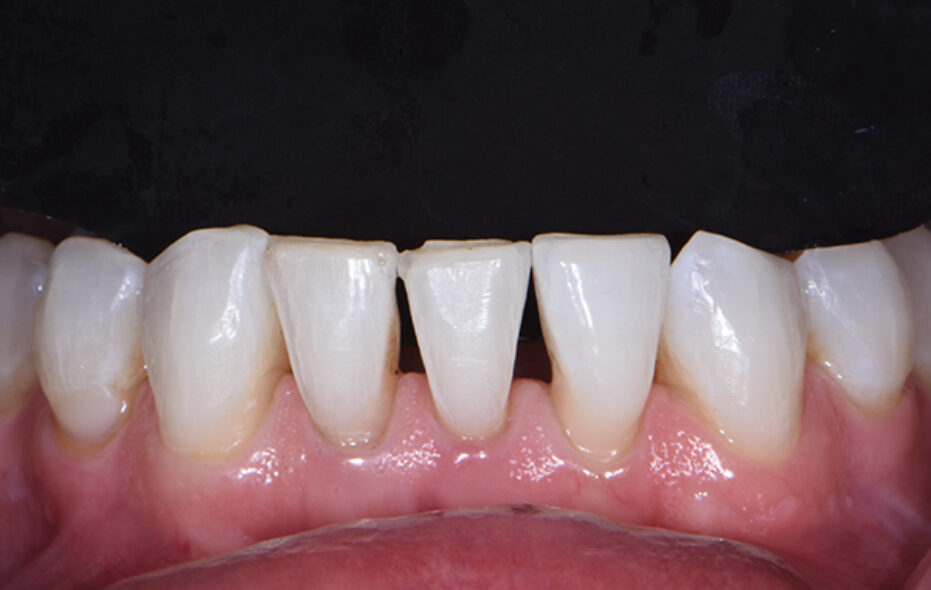 Menu
Menu
 Menu
Menu

Black triangle teeth, also known as open gingival embrasures, refer to the space that forms between teeth near the gumline, creating a triangular gap. This condition can be aesthetically displeasing and may also indicate underlying oral health issues. Understanding the causes, prevention methods, and treatment options for black triangle teeth is essential for maintaining a healthy and confident smile.
Black triangle teeth are characterized by small, triangular gaps that form between teeth and the gumline. These spaces can vary in size and are often more noticeable in the front teeth. While they can occur naturally due to variations in tooth size and shape, black triangle teeth are commonly associated with gingival recession, tooth wear, and periodontal disease.
One of the primary causes of black triangle teeth is gingival recession, which occurs when the gum tissue pulls away from the teeth, exposing the roots. This recession can be caused by factors such as aggressive brushing, gum disease, hormonal changes, and genetics.
Excessive wear on the teeth, either from grinding or clenching, can also contribute to the development of black triangle teeth. Over time, this wear can cause the enamel to erode, leading to gaps between the teeth and the gumline.
Periodontal disease, or gum disease, is a bacterial infection that affects the gums and supporting structures of the teeth. As the disease progresses, it can cause the gums to recede, creating black triangle spaces between the teeth.
Black triangle teeth not only affect the appearance of the smile but can also have implications for oral health.
The gaps between teeth provide a breeding ground for bacteria, increasing the risk of tooth decay and cavities. Without proper treatment, decay in these areas can progress rapidly, leading to further oral health issues.
Exposed tooth roots due to black triangle teeth can make the gums more susceptible to sensitivity and discomfort, especially when consuming hot, cold, or acidic foods and beverages.
Preventing and treating black triangle teeth involves addressing the underlying causes and implementing appropriate interventions.
Dental bonding involves applying a tooth-colored composite resin to the affected areas to fill in the gaps and improve the appearance of the smile.
In cases where misalignment contributes to black triangle teeth, orthodontic treatment such as braces or Invisalign may be recommended to reposition the teeth and close the gaps.
For severe cases of gingival recession, gum grafting surgery may be necessary to restore lost gum tissue and cover exposed tooth roots, reducing the appearance of black triangle spaces.
In addition to professional interventions, certain lifestyle changes can help prevent the development of black triangle teeth.
Maintaining good oral hygiene practices, including brushing twice a day, flossing daily, and using an antiseptic mouthwash, can help prevent gum disease and gingival recession.
Routine dental examinations allow dentists to monitor the health of the gums and teeth and address any issues before they progress.
A balanced diet rich in vitamins and minerals, particularly calcium and vitamin C, can support overall oral health and reduce the risk of gum disease and tooth wear.
In addition to addressing the underlying causes, several cosmetic dental procedures can help improve the appearance of black triangle teeth.
Dental veneers are thin, custom-made shells that are bonded to the front surface of the teeth to conceal imperfections such as gaps, discoloration, and irregularities.
For individuals with missing teeth or severe tooth decay, dental implants offer a permanent solution for replacing missing teeth and filling in black triangle spaces.
Invisalign clear aligners provide a discreet and comfortable alternative to traditional braces for correcting misalignment and closing gaps between teeth.
Black triangle teeth can affect both the appearance and oral health of individuals, but with proper prevention and treatment, it is possible to achieve a healthy and confident smile. By addressing underlying issues such as gingival recession, tooth wear, and periodontal disease, as well as implementing cosmetic solutions, individuals can improve the aesthetics of their smile and maintain optimal oral health. You can book an appointment for a dental check up with us here.
1. Can black triangle teeth be fixed? Yes, black triangle teeth can be fixed through various treatment options such as dental bonding, orthodontic treatment, and gum grafting.
2. Are black triangle teeth a sign of gum disease? Black triangle teeth can be associated with gum disease, but they can also result from other factors such as tooth wear and misalignment.
3. Is dental bonding permanent? Dental bonding is a relatively simple and non-invasive procedure, but it may need to be replaced over time due to wear and staining.
4. How long does Invisalign treatment take? The duration of Invisalign treatment varies depending on the individual case, but it typically ranges from 6 to 18 months.
5. Are there any risks associated with gum grafting surgery? While gum grafting surgery is generally safe, there are potential risks such as infection, bleeding, and gum recession. It is essential to follow post-operative instructions provided by your dentist to minimize these risks.
Back to BlogsWe offer discreet and effective
teeth straightening with Invisalign®